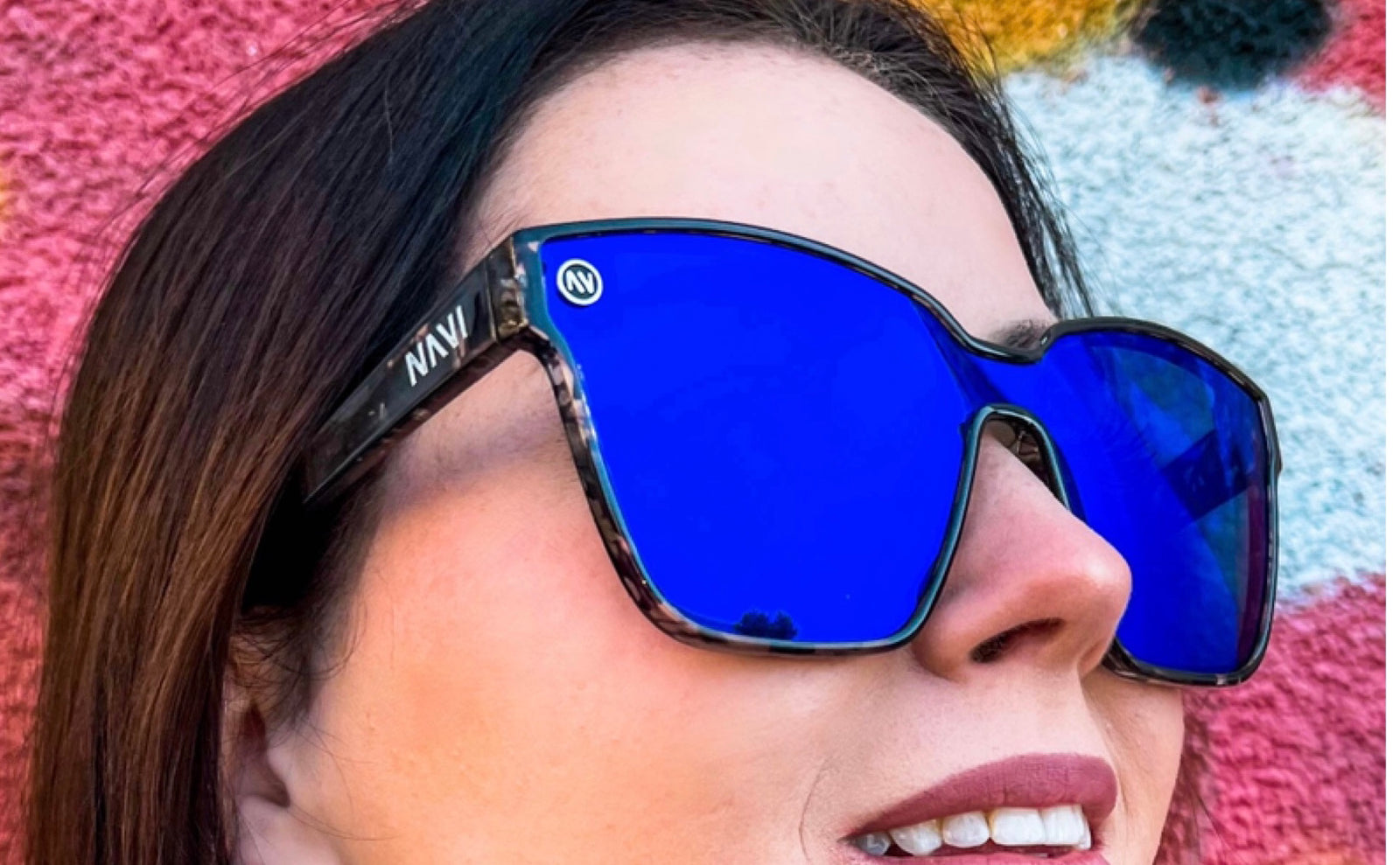Sunglassesare more than just a fashion accessory. They also protect your eyes from harmful UV rays and can improve your vision in bright light. However, choosing the right pair of sunglasses can be daunting, especially if you are not sure which styles will suit your face shape. In this article, we will guide you through the process of selecting the perfect sunglasses for your face shape.
- Determine Your Face Shape
Before you start looking for sunglasses, it is important to determine your face shape. The four main face shapes are round, square, heart-shaped, and oval. You can do this by looking in a mirror and tracing the outline of your face with a lipstick or marker.
1.1 Round Face Shape
If you have a round face, your face will be as wide as it is long, with full cheeks and a rounded chin. Angular sunglasses with rectangular or square frames can help balance out the softness of a round face.
1.2 Square Face Shape
A square face shape features a broad forehead and a strong jawline. Sunglasses with round or oval frames can soften the angles of a square face.
1.3 Heart-Shaped Face Shape
Heart-shaped faces have a wider forehead and cheekbones that taper down to a narrow chin. Aviator or butterfly-shaped sunglasses can complement the angles of a heart-shaped face.
1.4 Oval Face Shape
Oval face shapes are longer than they are wide, with gently rounded cheekbones. Most styles of sunglasses suit an oval face shape, but oversized frames can look particularly striking.
- Consider Your Skin Tone
Your skin tone can also play a role in determining which sunglasses will look best on you. Cooler skin tones tend to suit silver, blue, and pink tinted frames, while warmer skin tones pair well with gold, brown, and green tinted frames.
- Choose the Right Frame Size
The size of the sunglasses frame should be proportionate to your face size. If you have a smaller face, choose smaller frames, and if you have a larger face, opt for larger frames. The frames should also fit comfortably on your nose and ears without being too tight or too loose.
- Think About the Occasion
Consider the occasion and your personal style when choosing sunglasses. If you are looking for sunglasses for everyday wear, classic styles such as Wayfarers or aviators are a safe bet. However, if you are looking for a pair of sunglasses for a formal event, a more elegant or sophisticated style may be more appropriate.
- Choose the Right Lens Color
The color of the sunglasses lenses can also have an impact on how they look on your face. Darker lenses are ideal for bright sunlight and can reduce glare, while lighter lenses are better suited for overcast days. Brown or amber lenses can enhance contrast and are great for sports, while green or gray lenses are versatile and suit most occasions.
- Consider Polarized Lenses
Polarized lenses are designed to reduce glare and improve vision in bright light. They are particularly useful for activities such as driving or watersports, but can also be beneficial for everyday wear.
Conclusion
Choosing the perfect sunglasses for your face shape and personal style can seem overwhelming, but by following these tips, you can find a pair that complements your features and enhances your look. Remember to consider your face shape, skin tone, frame size, occasion, lens color, and whether or not to choose polarized lenses. With the right pair of sunglasses, you can look stylish while protecting your eyes from the sun's harmful rays.
FAQs
What are the most popular sunglasses styles?
Some of the most popular sunglasses styles include aviators, wayfarers, round frames, cat-eye frames, and rectangular frames.
Can I wear any style of sunglasses if I have an oval face shape?
Yes, most styles of sunglasses suit an oval face shape. However, oversized frames can look particularly striking.
What should I consider when choosing the right lens color for my sunglasses?
Consider the amount of light you will be exposed to, as well as the activities you will be doing while wearing your sunglasses. Darker lenses are ideal for bright sunlight and can reduce glare, while lighter lenses are better suited for overcast days.
Are polarized lenses worth the extra cost?
If you spend a lot of time outdoors or participate in activities such as driving or watersports, polarized lenses can be very beneficial in reducing glare and improving vision. However, if you only wear sunglasses occasionally, you may not need to invest in polarized lenses.
Can I wear sunglasses indoors?
While it is not necessary to wear sunglasses indoors, some people with light sensitivity or certain medical conditions may benefit from wearing sunglasses in bright indoor environments.




